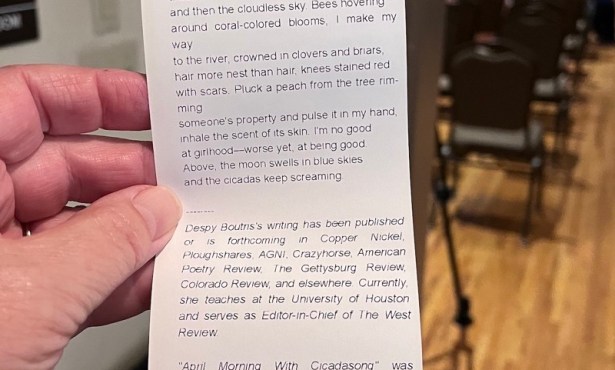Gerald Horne Scrutinizes 1776 During UCSB Visit
A practicing lawyer who taught at UCSB from 1988-1996, Gerald Horne brought the topic of the African slave trade and his heretical view of the American Revolution to UCSB’s MultiCultural Center on May 8. Horne’s lecture, part of the Shirley Kennedy lecture series, and new book, The Counter-Revolution of 1776: Slave Resistance and the Origins of the United States of America, focused on the concept that the Revolution of 1776 had much to do with the founding fathers’ fight to preserve the right to own slaves as they saw England inevitably moving toward the abolition of slavery.

Horne has written more than 30 books on the struggles of those marginalized throughout world history and is chair of History and African Studies at University of Houston. He believes that any study of the African slave trade in the United States should start the story a decade earlier than customary. His book, “unlike previous scholarship in this realm,” he said, “does not begin in the 1770s because that’s part of the problem. When you start on July 4, 1776, you distort the story.” Citing the historical evidence of slave trade development and slave revolt, Horne explained his thesis that the American Revolution was sparked by the feeling in the colonies that London would soon be imposing abolition upon them. Ironically, one of the freedoms the founding fathers sought was the freedom to hold slaves, according to Horne.
He went through the slave trade timeline internationally and discussed how, prior to 1776, more Africans were taking up arms with the British military, which led to the strengthening of anti-slavery sentiments in England. Horne said the many slave rebellions in Jamaica and Antigua made American colonists fear they would spread to their farms and plantations as well.
Horne also pointed to the rising class warfare among white colonists. He told the history of an all-white colony attempted in Georgia and how unsuccessful it was. Planters had brought in poor white Europeans to do the hard work in the fields, but they often escaped working because “they looked just like the planters.” This development of class warfare among whites, Horne suggested, was one reason the founding fathers wanted to fight for the right to continue slavery. He said that this was the beginning of “militarized identity politics” and that the “construction of whiteness helps to explain part of the ‘success’ of the United States.”
Horne’s take on the American Revolution as a pro-slavery “counter-revolution” puts a nice twist on the history of America. He ended his lecture by connecting the prevalence of racism today and the hidden history of the United States.



